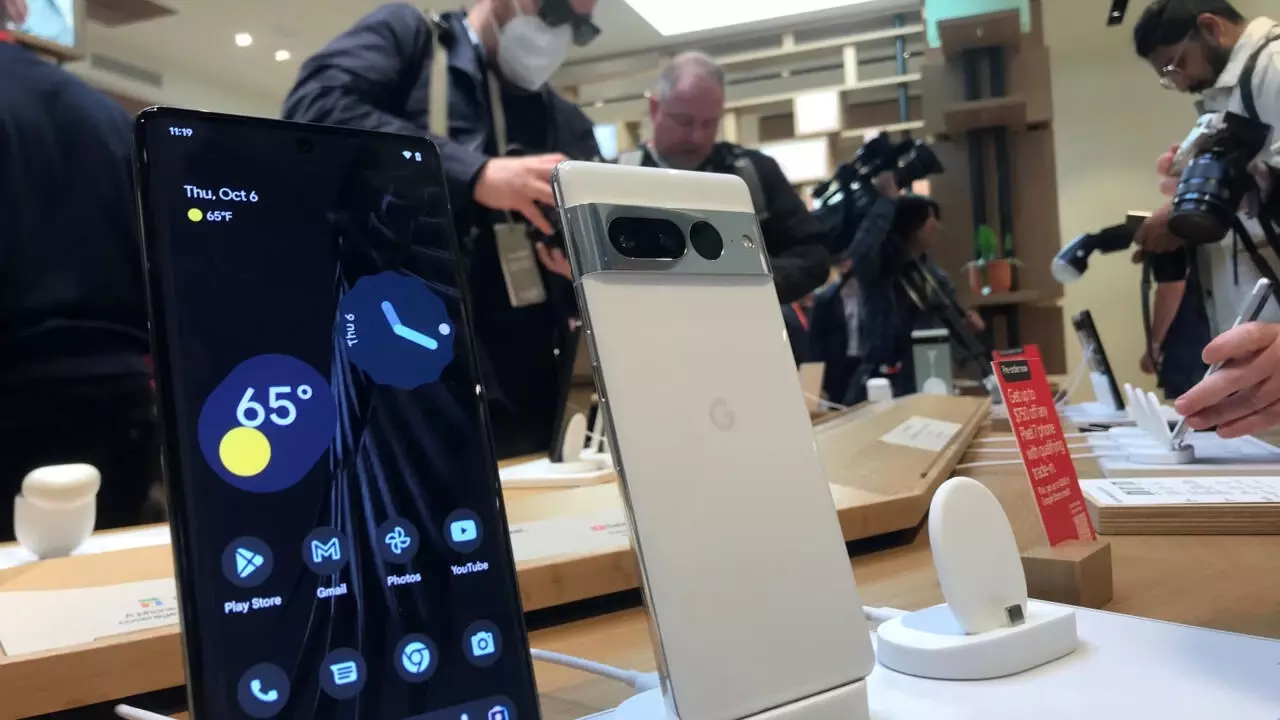Smartphone sales sag as consumers delay purchases: report
SAN FRANCISCO

Global smartphone sales have slumped this year amid a “gloomy economic outlook,” prompting people to spend money on essentials instead of the latest gadgets, according to a market tracker.
Smartphone sales in the recently ended quarter were nine percent less than in the same period a year earlier, hitting a low not seen since 2014, according to research firm Canalys.
Worldwide smartphone sales in each quarter have fallen short in comparison to those in the same periods last year, it said.
“The gloomy economic outlook has led consumers to delay purchasing electronic hardware and prioritize other essential spending,” the market tracker said.
Canalys expected that situation to continue to dampen smartphone sales into next year.
“For most vendors, the priority is to reduce the risk of inventory building up given deteriorating demand,” said Canalys analyst Amber Liu.
“The pricing strategy of new products is cautiously crafted, even for Apple, to avoid significant pushback from consumers who now tend to be very sensitive to any price hike.”
Apple’s share of the global smartphone market climbed to 18 percent in the recent quarter, compared with 15 percent in the same period a year ago, while the share of leading smartphone maker Samsung rose one percentage point to 22 percent, Canalys reported.
Apple meanwhile has dialed back production of its recently launched iPhone+ model while it evaluates demand, news website The Information reported, citing sources.
CFRA analyst Angelo Zino agreed that broad economic woes have caused smartphone demand to erode, but expected Apple to fare better than the competition.
Sales of smartphones improved in September due to “aggressive” discounts and promotions, according to Canalys.
Heading into the year-end holiday shopping season, “consumers who have been delaying purchases will expect steep discounts and bundling promotions as well as significant price reductions on older generation devices,” said Canalys analyst Sanyam Chaurasia.
Meanwhile, telecom giants Ericsson and Nokia reported lower-than-expected profits for the third quarter yesterday.
Sweden’s Ericsson reported a net profit of 5.4 billion Swedish kronor ($480 million) between July and September, down seven percent compared to a year earlier.
It was below analyst expectations of between 5.7 billion and 5.9 billion kronor.
Finnish competitor Nokia reported a 22-percent rise in profit to 428 million euros ($419 million) - well short of the 514-539 million euros forecast by analysts.
“As we start to look beyond 2022, we recognise the increasing macro and geopolitical uncertainty within which we operate,” Nokia CEO Pekka Lundmark said.
















